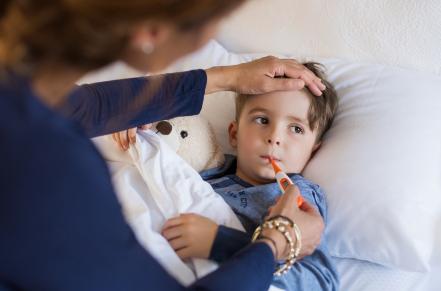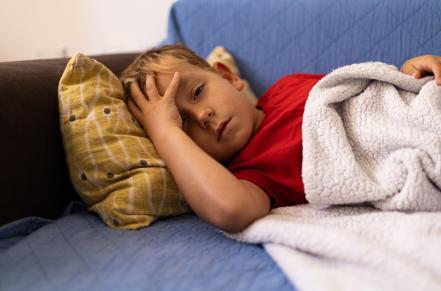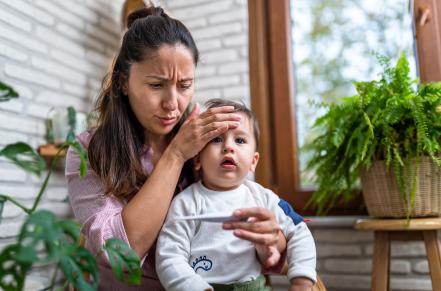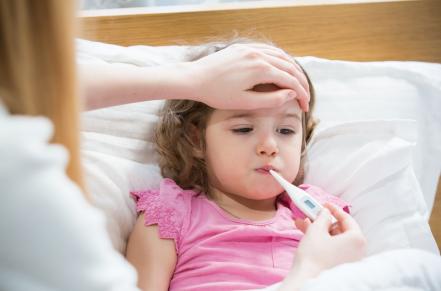What Is It?
Rubella, also called German measles or three-day measles, is a childhood disease caused by the rubella virus.
What Are the Symptoms?
The symptoms of rubella include fever, swollen lymph nodes (glands), and a red rash that covers the body from the face to the trunk and then to the upper limbs. Some children present no symptoms.
Who Gets It and How?
Rubella is a common viral illness of childhood. It is rare today because most children are immunized against it. People who have had rubella before or who were immunized usually cannot catch it again. Although it is a mild disease in children, it can be very serious if a pregnant woman catches rubella during the first three months of pregnancy. It can lead to miscarriage, stillbirth or to severe birth defects.
Rubella is generally diagnosed by the characteristics of the rash and confirmed by a blood test. There is no specific treatment. Pregnant women who are exposed or who get the disease should contact their health provider immediately.
It is spread by saliva and respiratory discharges from the nose and mouth, through the air, or on hands and surfaces. A person can spread the disease from as many as five days before the rash appears to five to seven days afterwards.
When Should People with this Illness Be Excluded?
Exclusion is generally for six days after the rash appears. It is contagious several days before the rash appears and for five days after. It takes two to three weeks for the illness to appear after exposure.
Where Should I Report It?
- Rubella is a reportable illness in California
- Licensing requires that child care providers report to their local health department and to Licensing if there are two or more known or suspected cases of rubella in a child care program. However, the American Academy of Pediatrics strongly recommends that child care providers report even if there is only a single case, to ensure that the local Public Health Department is aware that this serious illness is present in a child care setting.
- Notify all parents/guardians of children if there is even one case of Rubella. Keep the identity of the infected child(ren) confidential. It is important that parents monitor their children for any symptoms.
- Notify all staff if there is even one case, with a special warning to any pregnant women. Pregnant women exposed to rubella should then notify their prenatal care provider.
How Can I Limit the Spread of Rubella?
- Make sure that all children and staff use good hand washing practices.
- All children should be fully immunized against rubella following the recommended schedule.
- All female staff in their childbearing years should have a blood test for sensitivity to rubella.
- Keep all pregnant women, infants and unimmunized individuals away from a person ill with rubella.
- Follow universal precautions.
- Carefully observe other children, staff, or family members for symptoms.







